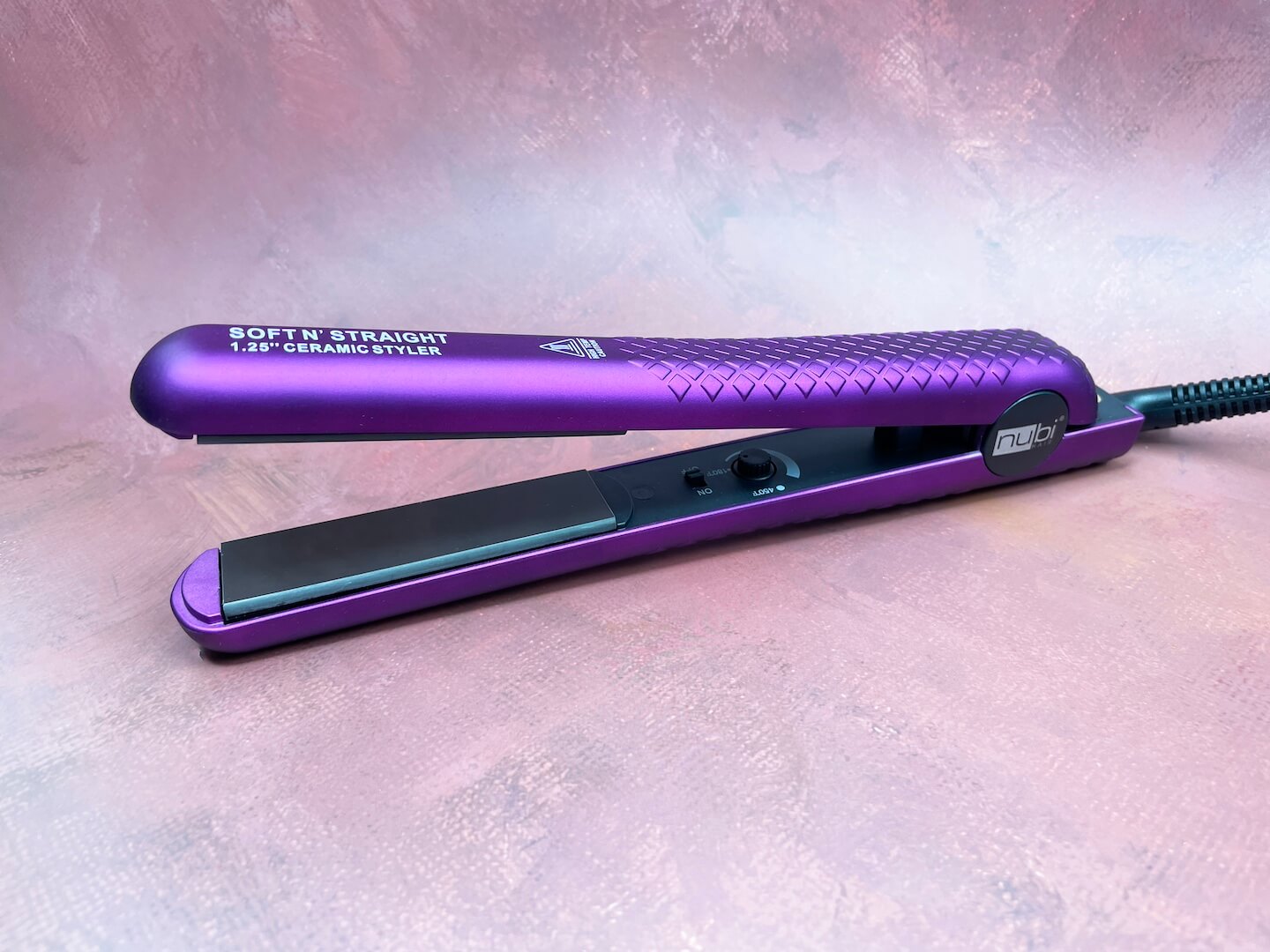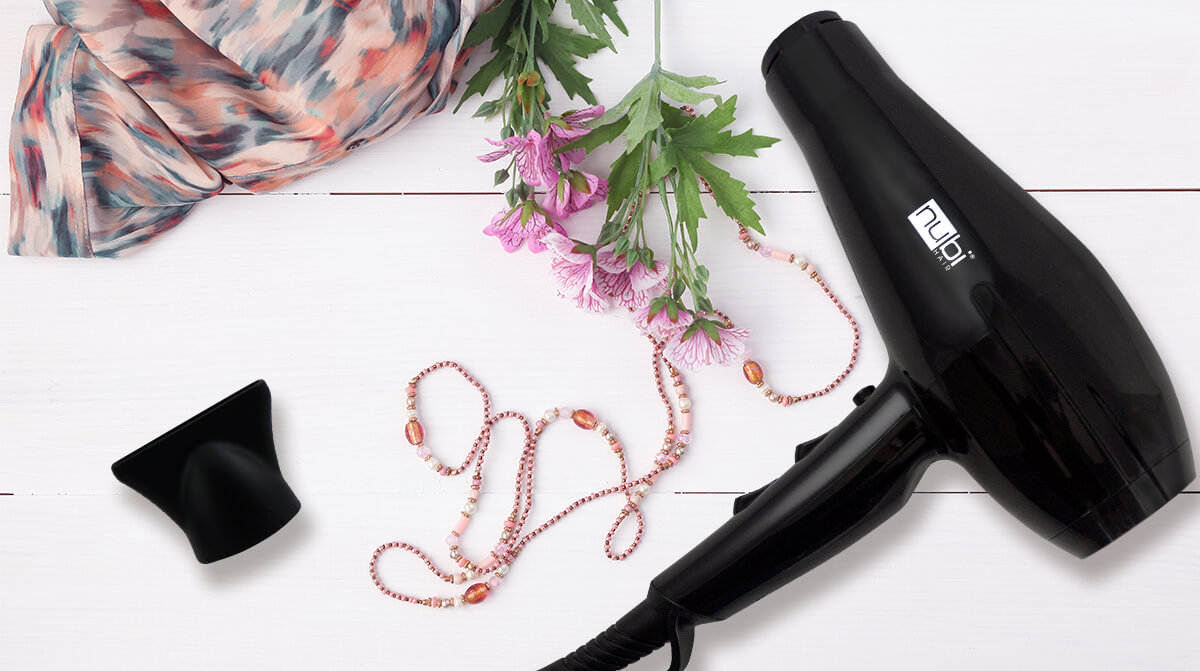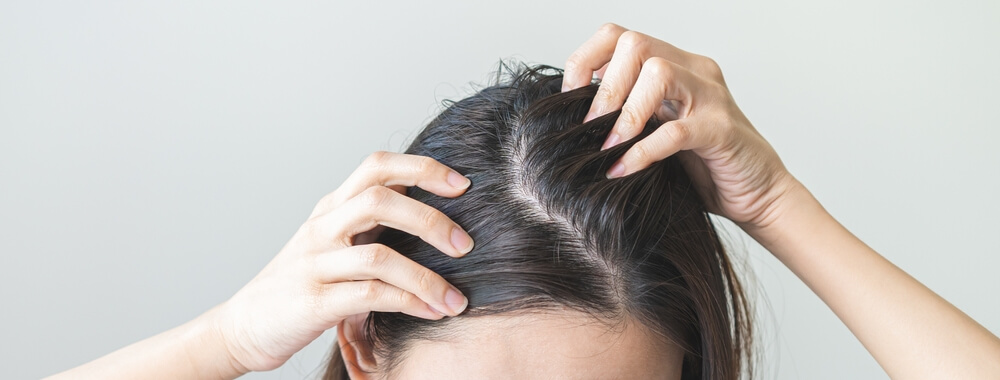Hair Care
Is Your Scalp Healthy? Here’s How to Tell
Usually, when picking out hair care products, people tend to focus on how those formulas will help their strands. The scalp is an area that isn’t often considered. After all, it isn’t on display to the world in the way that your hair is!
However, scalp health is more important than many realize. This is the foundation from which your hair grows, meaning that the healthier your scalp feels, the healthier your hair will look. If your scalp isn’t currently in the best shape, rectifying this could have a transformational effect on how your hair looks and feels.
How do you know if your scalp is healthy or not? Read on as Nubi explains. We’ll also share some top tips on the steps that you can take to make your scalp feel healthier so that your strands benefit as a result!
Signs That Your Scalp is Unhealthy
An unhealthy scalp can manifest in a number of ways. Here are a few signs to look out for that indicate that your scalp could do with some TLC – you may experience just one or you may find yourself dealing with them all but, either way, any of the following means that your scalp is crying out for some help:
- Itching
- Flaking or dandruff
- Redness and inflammation
- Irritation and sensitivities
- Excessive oiliness
- Excessive dryness
- Bumps or sores
- Thinning hair
- Excessive hair loss
- Acne
How to Care for Your Scalp
If you can relate to any of the above symptoms, this means that you need to up your scalp care game. How? Here are some steps to follow:
Be Careful When Heat Styling

You’re probably aware of how heat styling can damage your hair itself, but did you know that it can affect your scalp too? Exposing your scalp to high levels of heat can quickly dry it out. This can result in itching, irritation, and redness.
Don’t worry, this doesn’t mean that you need to stop heat styling your locks. Instead, always use a heat protectant first and then avoid holding your heated styling tools near to your scalp for too long. Ideally, you should also be using a heated styling tool that enables you to adjust how much heat is emitted, like the Nubi Soft N’ Straight 1.25” Ceramic Purple Styler. You can choose between 180º-450ºF. While you may need the highest temperature if your hair is extremely thick and coarse, everyone else will be able to style with a lower heat setting. This will go a long way in keeping your scalp, as well as your hair, feeling healthier.
Avoid Harsh Hair Care Ingredients
While hair care products should, in theory, be beneficial for your hair, many of the formulas out there could be contributing to your scalp issues. They’re often formulated with harsh ingredients, such as alcohols, sulfates, and parabens. These are all known for how they dry out the skin, including the skin on the scalp. The way in which they deplete the moisture levels in your scalp will leave you dealing with inflammation, dryness, itching, and irritation.
Instead, swap those harsher formulas for gentle products. From your shampoos and conditioners to your hair serums, look for products that don’t contain known irritants. Many experts in healthcare warn against harsh chemicals in hair care.
Dry Wet Hair Properly

Have you ever tied your wet hair into a ponytail or a bun because you didn’t have time to do anything else with it? Chances are that this left you dealing with an itchy scalp afterward.
This is down to how a scalp that’s saturated with moisture provides the perfect breeding ground for bacteria. Water has a neutral pH, which bacteria love. As soon as bacteria begin to grow, irritation occurs, and this can take place in a matter of hours.
To prevent this, your scalp and hair need to return to their normal, acidic pH as soon as possible after being wet. This means thoroughly drying them. For best results, start with a microfiber towel. Soak up excess moisture from your scalp and gently squeeze it out of your lengths. Once your hair is about 75-80% dry, reach for a blow dryer to finish the job. The Nubi Blow Me Away dryer, which comes with a powerful motor, three temperature settings, and two concentrators, will have your hair dry in no time!
Be Gentle When Shampooing
People often get quite vigorous when shampooing their hair. They use their nails to scratch and scrub their shampoo into the scalp, believing that this will help the shampoo to cleanse more effectively.
Unfortunately, all you’re doing is damaging your scalp. Even a small abrasion could soon lead to big scalp problems, so, once again, be gentle. Use your fingertips to massage your shampoo in, taking care not to cause any harm to the skin on your scalp while you do so.
Don’t Wash Your Hair Too Often
It goes without saying that keeping your scalp clean is essential for keeping it healthy. This means that you should be shampooing it regularly. If you don’t, your hair follicles will only end up clogged with sebum, dirt, dead skin, and more. Not only will this inhibit hair growth but it will also cause itching, flaking, acne, and even infections.
However, while cleansing your scalp is important, be careful not to over-cleanse. You need to leave a small amount of sebum behind because completely stripping your scalp of oil will only throw it off balance and, as you may have guessed, cause scalp problems.
Avoid Applying Conditioners and Hair Oils to Your Scalp
As we mentioned, clogged hair follicles are not what you want to be dealing with. They’re the start of a long line of scalp issues. Regularly cleansing your scalp will help to prevent this but it won’t do much if, immediately after shampooing your hair, you then apply a conditioner or an oil to your scalp. Both of these products usually contain rich, clogging ingredients, which won’t be scalp-friendly.
Instead, save these products for your mid-lengths downward. They can be extremely beneficial for helping to hydrate and moisturize the hair but your scalp really doesn’t need them!
Exfoliate Your Scalp
You probably already regularly exfoliate the skin on your face and body. However, what about the skin on your scalp? Just like your skin everywhere else, your scalp benefits from being exfoliated too. This will remove excess sebum, product buildup, dandruff flakes, and more, leaving your scalp feeling healthier and revitalized.
While there are plenty of recipes out there for DIY scalp scrubs, stay safe by opting for a professionally formulated product. This way, you won’t risk using overly abrasive ingredients or ingredient blends that interfere with your scalp’s pH.
Protect Your Scalp From the Sun
There’s no denying the importance of vitamin D for the body. In fact, research shows that hair loss is often linked to vitamin D deficiencies. With that said, you only need about 10-30 minutes (depending on your skin tone) in the sun to obtain your daily vitamin D requirement. Any more than this and you risk causing serious damage to your skin, including the skin on your scalp.
This is why dermatologists always preach about the importance of sun protection. If your scalp is already unhealthy, then this becomes even more important.
How do you protect your scalp from the sun? One option is with a scalp SPF product. However, adding more product to your scalp will leave you susceptible to clogged hair follicles due to product buildup.
Instead, keep things simple by making use of accessories that provide a physical barrier between your scalp and the sun. Treat yourself to a few hats and scarves and you’ll be able to shield your scalp year-round.
Make Sure That You’re Getting Enough Omega Fatty Acids
In addition to providing the right topical care for your scalp, you also need to ensure that you’re nurturing it from within. The food that you eat plays a big role in this. While a fresh and balanced diet is the best way forward for your skin, there are a few nutrients out there that are particularly beneficial when it comes to scalp health.
Omega fatty acids are the perfect example. Research shows that increasing your intake of them can give you hair that feels stronger and thicker. This is largely down to how they soothe the feeling of inflammation in the skin, including the scalp.
Fatty fish are a great source of omega fatty acids, as are nuts, seeds, and plant oils. If you’re struggling to eat enough of these foods, consider adding a supplement to your diet.
Eat More Antioxidants
In addition to omega fatty acids, antioxidants are another nutrient group to focus on. These compounds work to neutralize free radical damage. This makes them great for reducing the feeling of inflammation in the scalp.
Incorporate a rainbow of fruits and vegetables into your diet and you’ll be able to give your scalp a variety of antioxidants. At the same time, make sure that any hair products you’re using contain antioxidants too!
Indulge in Regular Scalp Massages
Your blood carries oxygen and vital nutrients, feeding these to your skin cells as it flows through them. It also removes waste and toxins, encouraging your skin cells to feel healthy rather than sluggish. The faster your blood flows through your skin, the more nutrients your cells will receive and the more waste they’ll be able to eliminate.
This is why giving scalp circulation a boost can be very beneficial. How can you do this? With a scalp massage. This will also help to loosen buildup and dead skin cells. All you need to do is firmly work your fingertips over your scalp while you’re shampooing your hair, although you could also invest in a dedicated scalp massage tool. Either way, increasing blood flow in your scalp can help to give your hair a healthier and glossier sheen.
Summary
It’s easy to take a healthy scalp for granted, only paying attention to this area once problems start to show through. Fortunately, most scalp issues can be rectified with some extra TLC. Once you have your scalp back into balance again, give it the love and care that it needs to maintain that healthy feeling.
Click here to treat your scalp and hair to more bestselling products from Nubi.



